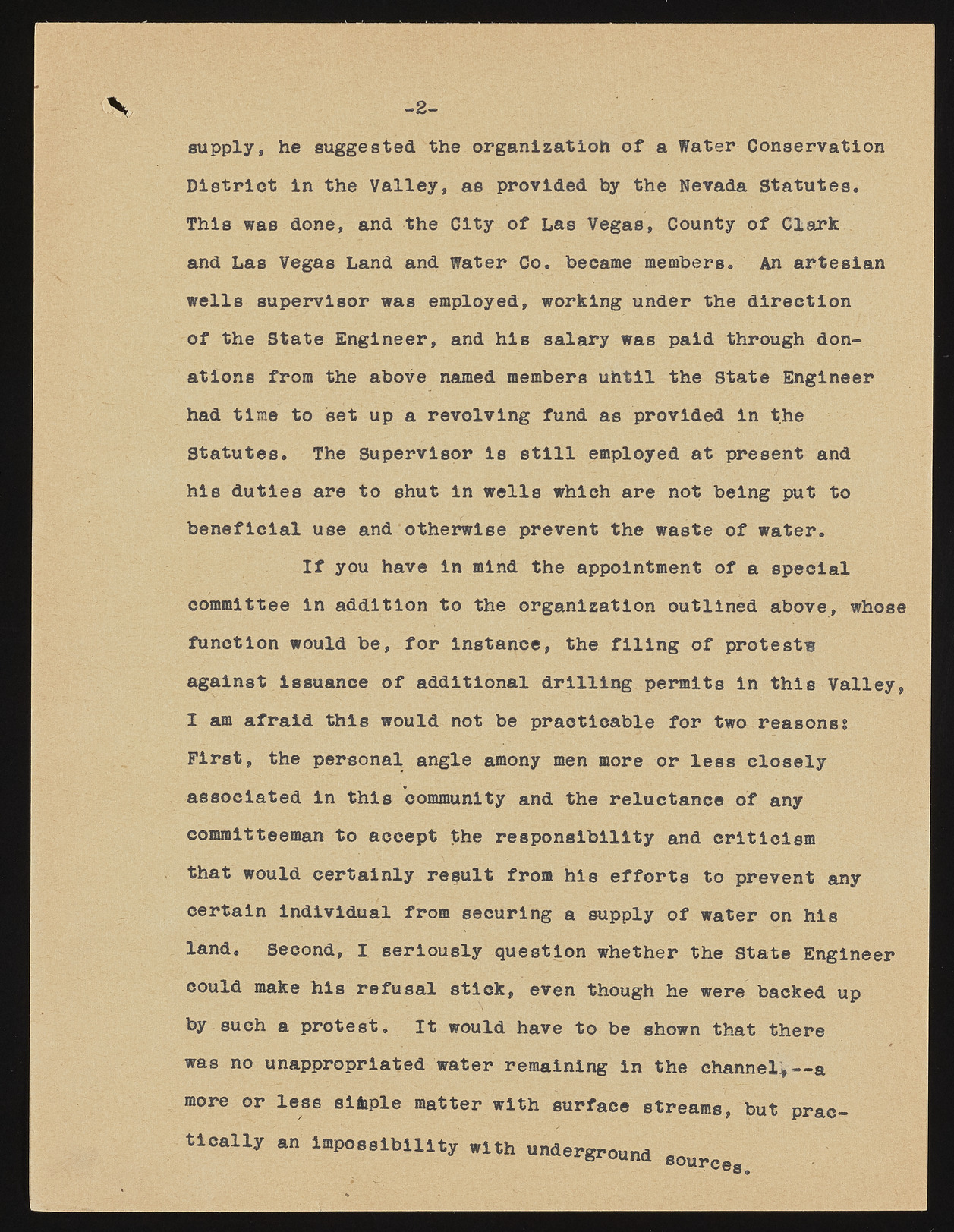Copyright & Fair-use Agreement
UNLV Special Collections provides copies of materials to facilitate private study, scholarship, or research. Material not in the public domain may be used according to fair use of copyrighted materials as defined by copyright law. Please cite us.
Please note that UNLV may not own the copyright to these materials and cannot provide permission to publish or distribute materials when UNLV is not the copyright holder. The user is solely responsible for determining the copyright status of materials and obtaining permission to use material from the copyright holder and for determining whether any permissions relating to any other rights are necessary for the intended use, and for obtaining all required permissions beyond that allowed by fair use.
Read more about our reproduction and use policy.
I agree.Information
Digital ID
Permalink
Details
Member of
More Info
Rights
Digital Provenance
Publisher
Transcription
V -2- supply, he suggested the organizatioh of a Water Conservation District in the Valley, as provided by the Nevada Statutes. This was done, and the City of Las Vegas, County of Clark and Las Vegas Land and Water Co. became members. An artesian wells supervisor was employed, working under the direction of the State Engineer, and his salary was paid through donations from the above named members uhtil the state Engineer had time to set up a revolving fund as provided in the Statutes. The Supervisor is still employed at present and his duties are to shut in wells which are not being put to beneficial use and otherwise prevent the waste of water. If you have in mind the appointment of a special committee in addition to the organization outlined above, whose function would be, for instance, the filing of protest® against issuance of additional drilling permits in this Valley, I am afraid this would not be practicable for two reasons? First, the personal angle amony men more or less closely associated in this community and the reluctance of any committeeman to accept the responsibility and criticism that would certainly result from his efforts to prevent any certain individual from securing a supply of water on his land. Second, I seriously question whether the State Engineer could make his refusal stick, even though he were backed up by such a protest. It would have to be shown that there was no unappropriated water remaining in the channel*— a more or less sifcple matter with surface streams, but practically an impossibility with underground 8emr •

